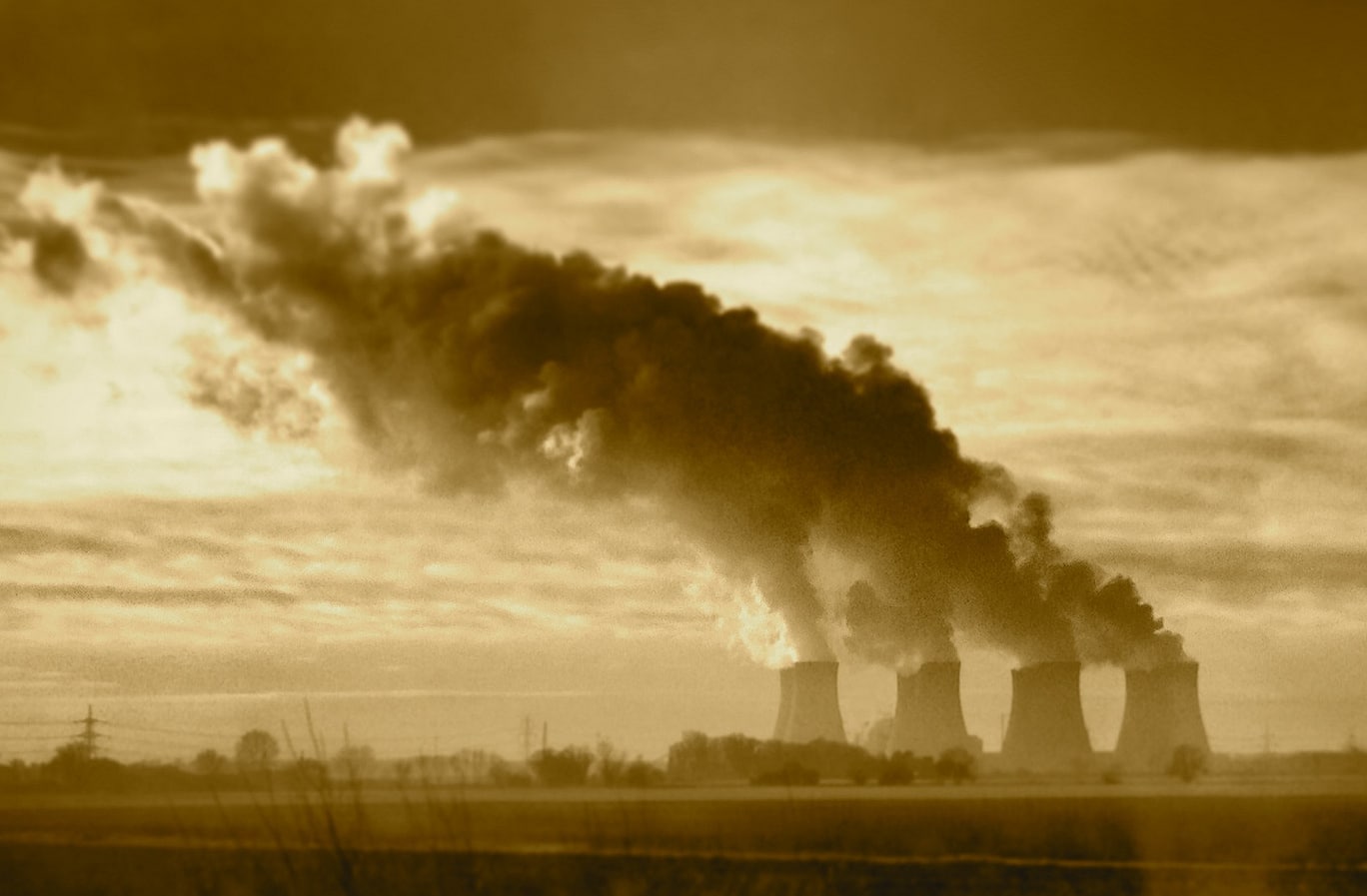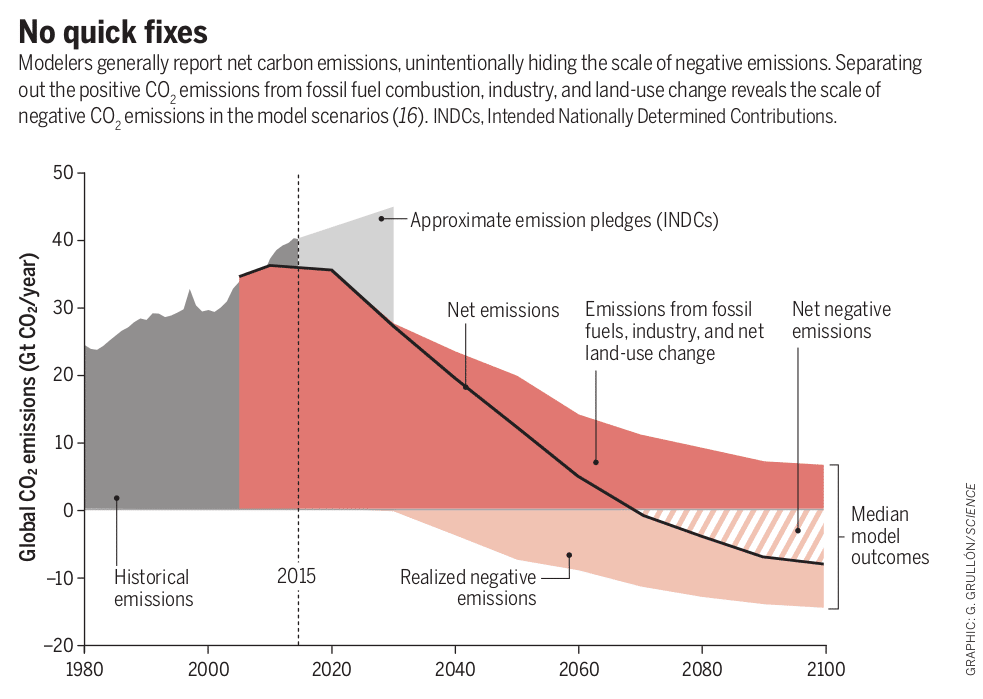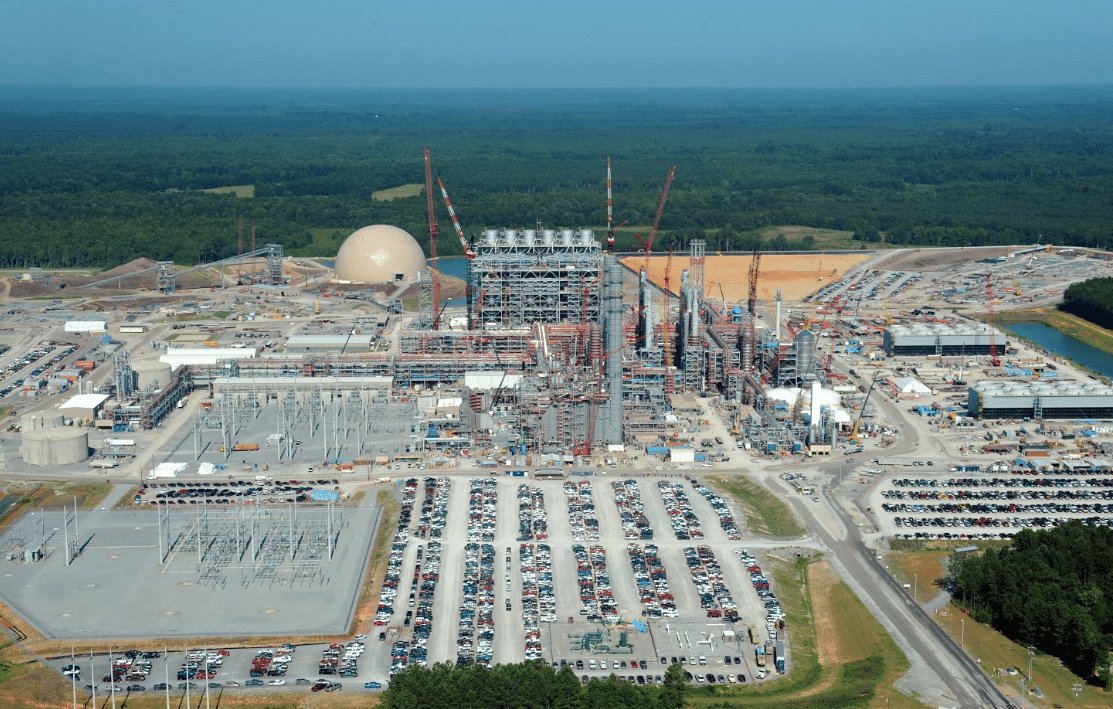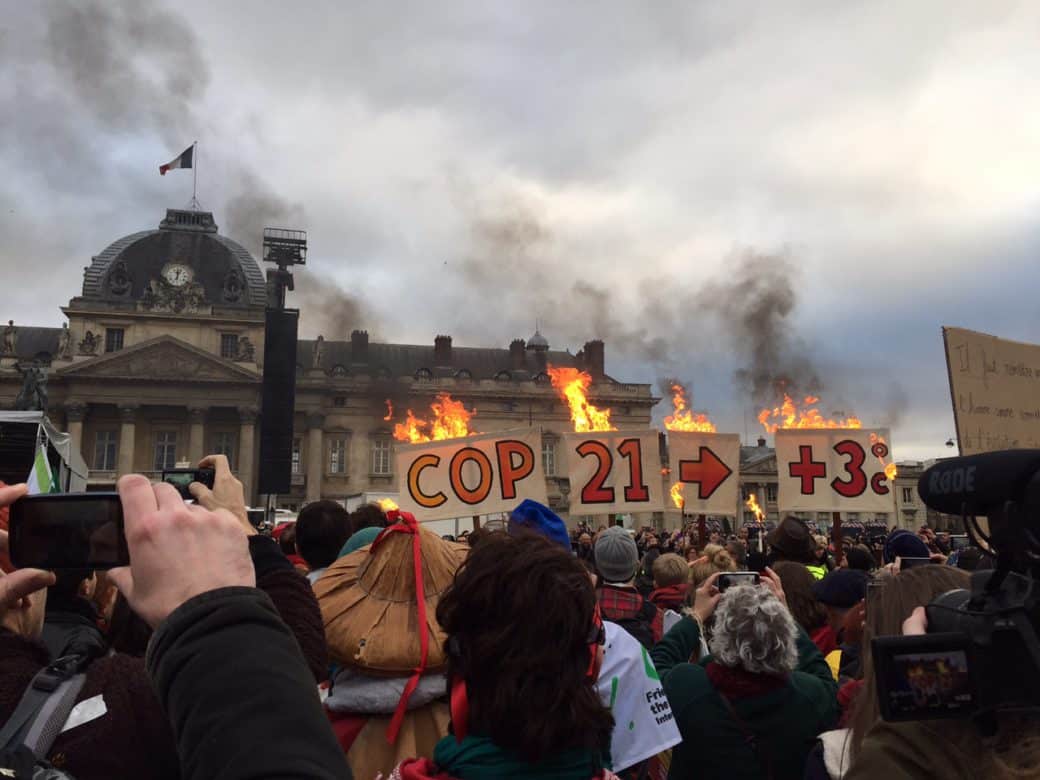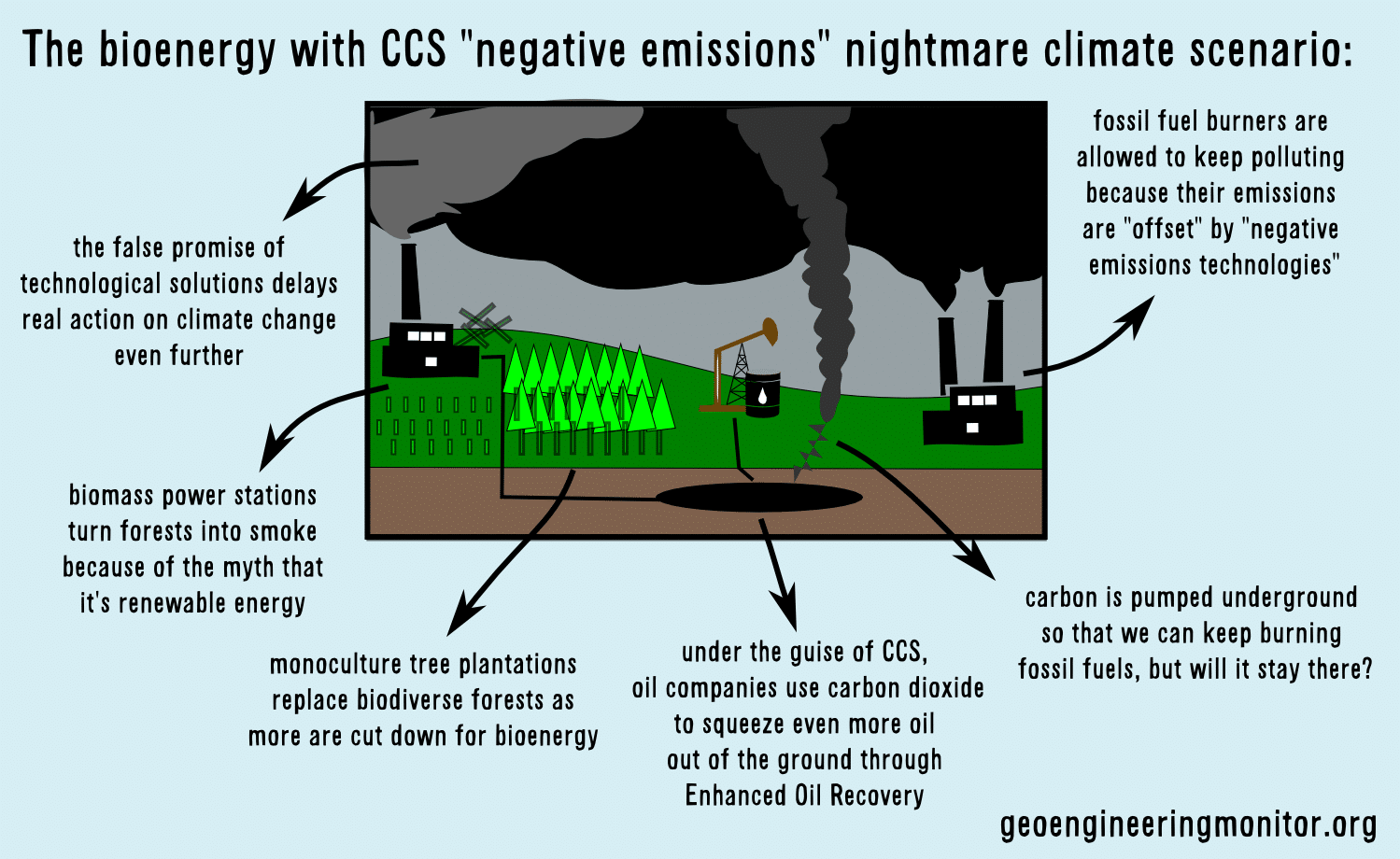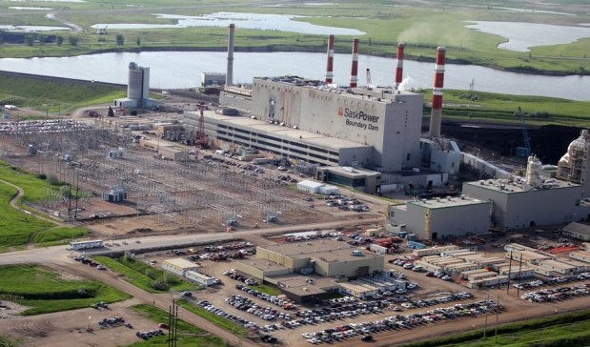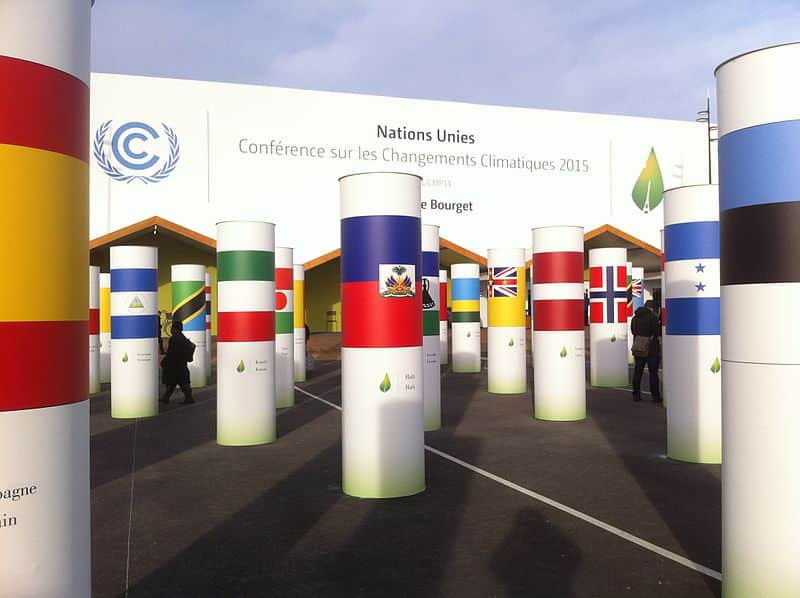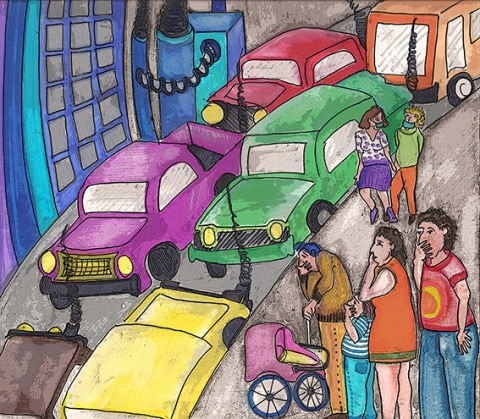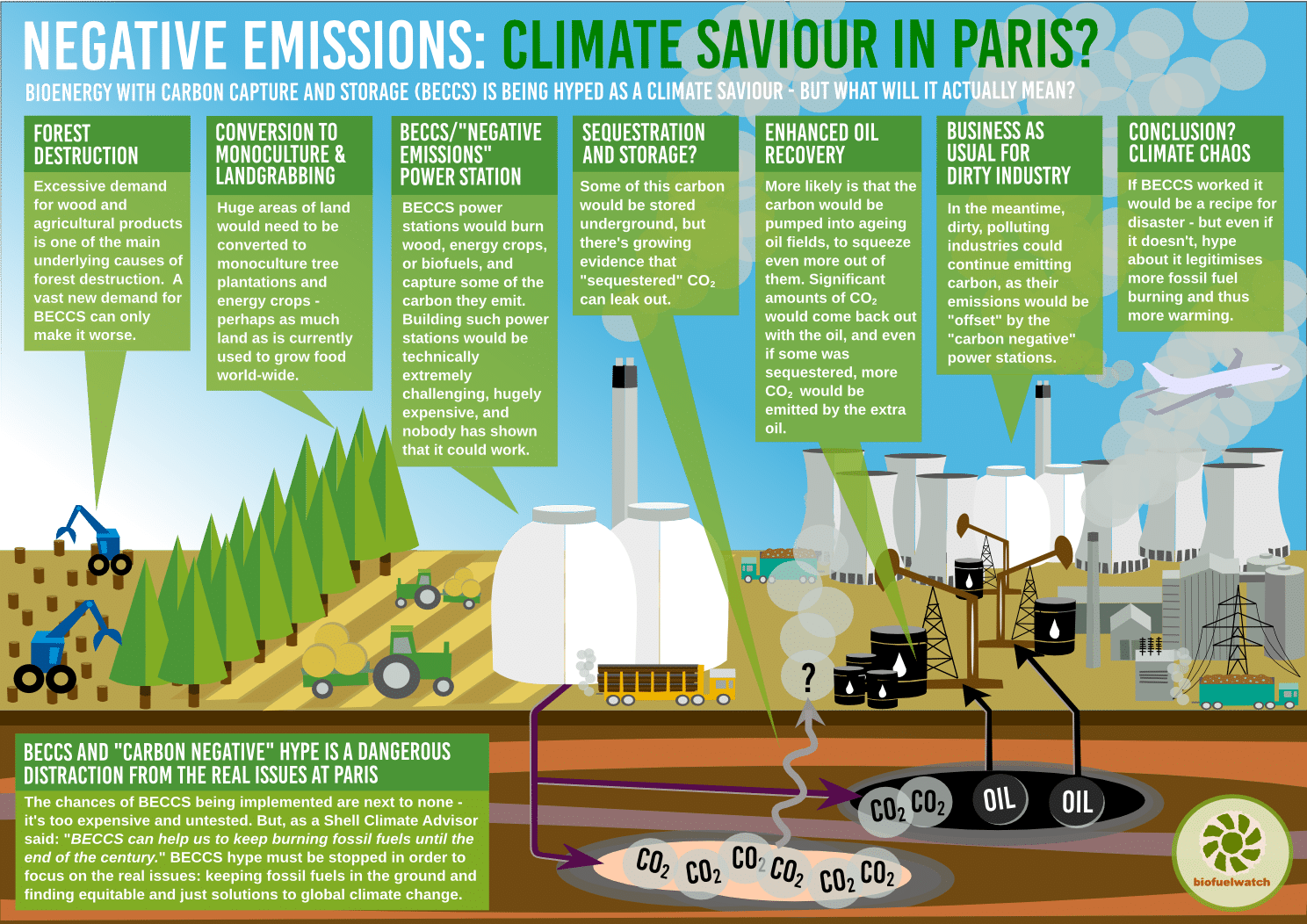by Roger Boyd (Resilience) There is a genre of Hollywood “feel-good” disaster movie, where everything seems nearly hopeless until the end, and then suddenly, many times against all hope, the super-hero (or super-heroes) saves the day. Whether it be human heroes that...
Bioenergy with Carbon Capture and Storage
Responses to: The Trouble with Negative Emissions
Last month we reported on Kevin Anderson and Glen Peters' piece in Science describing how a reliance on negative emissions to draw carbon out of the atmosphere - rather than making necessary and drastic emissions cuts now - will only lock in carbon addiction and make...
Using forests to curb climate change threatens human rights
by Fred Pearce (Thomson Reuters Foundation News) Trees offer ways to help achieve "negative emissions", but what does that mean for forest communities? The 2015 Paris Agreement on climate change was a landmark the world rightly applauded. Its pledge to limit global...
Radical Realism About Climate Change
by Lili Fuhr (Project Syndicate) BERLIN – Mainstream politics, by definition, is ill equipped to imagine fundamental change. But last December in Paris, 196 governments agreed on the need to limit global warming to 1.5°C above pre-industrial levels – an objective that...
With Sights Set on COP22, Group Offers Roadmap for ‘Fair Future’ in Warming World
by Nika Knight (Common Dreams) A sustainable solution to the climate crisis will also work to alleviate poverty and seek climate justice, says Friends of the Earth Germany "A future without climate chaos for all human beings on our planet is only possible if we don't...
The trouble with negative emissions
By Kevin Anderson and Glen Peters (Science) Reliance on negative-emission concepts locks in humankind’s carbon addiction In December 2015, member states of the United Nations Framework Convention on Climate Change (UNFCCC) adopted the Paris Agreement, which aims to...
No country on Earth is taking the 2 degree climate target seriously
by David Roberts (Vox) If we mean what we say, no more new fossil fuels, anywhere. One of the morbidly fascinating aspects of climate change is how much cognitive dissonance it generates, in individuals and nations alike. The more you understand the brutal logic of...
More funding being made available for negative emissions nonsense
A UK research fund has recently announced that £8.3m is being made available to fund up to 10 different research projects for a programme on Greenhouse Gas Removal from the Atmosphere. Examples given as potential topics for research proposals are: Soil carbon,...
How a US energy company tried to sell its failing ‘clean coal’ project to the world
Below is an article published by Greenpeace's Energy Desk about the latest scandal involving the Kemper County CCS project. This is extremely relevant to the bioenergy with CCS (BECCS) debate: Kemper County was one of two flagship CCS projects supported by the Obama...
Miserable failure at Kemper “clean coal” plant indicates future failure of “clean bioenergy” climate solution
Bioenergy with Carbon Capture and Storage (BECCS) was granted a huge boost of support by the IPCC’s “mitigation” Working Group in their 5th Assessment Report. Since then growing attention has been given to this technofix as the main approach to removing CO2 from the...
Norway shows how “net zero” rhetoric is utterly meaningless
Norway's parliament has just agreed to bring forward the goal of achieving "net zero" greenhouse gas emissions from 2050 to 2030, making it "a very ambitious goal". This means that in 14 years Norway will not be a net producer of climate-changing emissions. Why has...
In the aftermath of the Paris Agreement, nature and humanity lose
by Mary Louise Malig (Global Forest Coalition) The Paris Agreement has been signed in New York with much fanfare, a lot of shaking hands and patting each other on the back, and claims that “we did it” – that is, agreed a historic climate agreement that would save the...
Response to: Do we need BECCS to avoid dangerous climate change?
This comment by Biofuelwatch's Almuth Ernsting was posted in reply to a guest article by Prof Jason Lowe (Head of Knowledge Integration and Mitigation Advice at the UK’s Met Office and lead scientist for the government-funded AVOID2 research programme) which was...
Vultures are circling after Paris agreement: the carbon dioxide removal sector wants more funding
An article in BizGreen called “How to build a billion dollar industry to fight climate change” features insights from two mmbers of the University of Berkley's Centre for Carbon Removal, describing how increased funding from philanthropic sources can play a key role...
Climate change needs real solutions not more hot air
by Almuth Ernsting (New Internationalist) Are certain proposals to reduce carbon emissions based on technological hype? At a COP21 side event last December, proponents of Carbon Capture and Storage (CCS) hosted Mike Marsh, the CEO of publicly-owned Canadian energy...
Nature spotlights deep skepticism about bioenergy with carbon capture and storage
by Steven T. Corneliussen (Physics Today) To mitigate climate change, has the planet “gambled its future on the appearance in a puff of smoke of a carbon-sucking fairy godmother”? During the Paris climate summit late last year, European policy analyst Oliver Geden’s...
Nature article confirms: IPCC assumptions about BECCS ignore environmental and wider climate impacts
In his recent article in Nature, Dr Philip Williamson highlights how the targets set out in the Paris Agreement mask an underlying assumption that they will be met through large-scale carbon dioxide removal from the atmosphere and, in particular, through Bioenergy...
The hidden agenda: how veiled techno – utopias shore up the Paris Agreement
by Kevin Anderson (kevinanderson.info) The Paris Agreement is a genuine triumph of international diplomacy and of how the French people brought an often fractious world together to see beyond national self interest. Moreover, the agreement is testament to how...
The dubious promise of bioenergy plus carbon capture
by Richard Martin (MIT Technology Review) Climate change agreements rest on negative emissions technologies that may be unachievable. While many scientists and climate change activists hailed December’s Paris agreement as a historic step forward for international...
Talks in the city of light generate more heat
Rather than relying on far-off negative-emissions technologies, Paris needed to deliver a low-carbon road map for today, argues Kevin Anderson in Nature. (A longer version of this article can be found here.) The climate agreement delivered earlier this month in Paris...
Sign-on letter: No to 1.5°C with geoengineering!
Paris, 11 December 2015 Seemingly out of the blue (or rather, out of the black smog of the UNFCCC process), some of the largest historical culprits for climate change, countries including the United States, Canada and the European Union, have decided to back an...
The Phantom of the COP21 Opera: bioenergy with carbon capture and storage
by Oliver Munnion, Global Forest Coalition blog Yesterday I went to a briefing at the COP21 summit on how realistic achieving a 1.5 degree target as part of the Paris climate deal is, as opposed to the 2 degree target that was first proposed. At the end of the...
COP21’s climate technofix: spinning carbon into gold and the myth of ‘negative emissions’
by Rachel Smolker, The Ecologist Paris has been awash with hype about 'CO2 recycling' and 'carbon neutral' or even 'carbon negative' technologies based on burning millions of trees, writes Rachel Smolker. But the alchemical notion that waste carbon can be spun into...
Techno-Optimism and Bad Science in Paris: The Problem With Carbon Capture and Storage
by Almuth Ernsting, Truthout UN climate conferences provide a platform for advocating real solutions to the climate crisis - but also for selling and promoting false ones. At the climate conference this and next week in Paris, many civil society groups and social...



